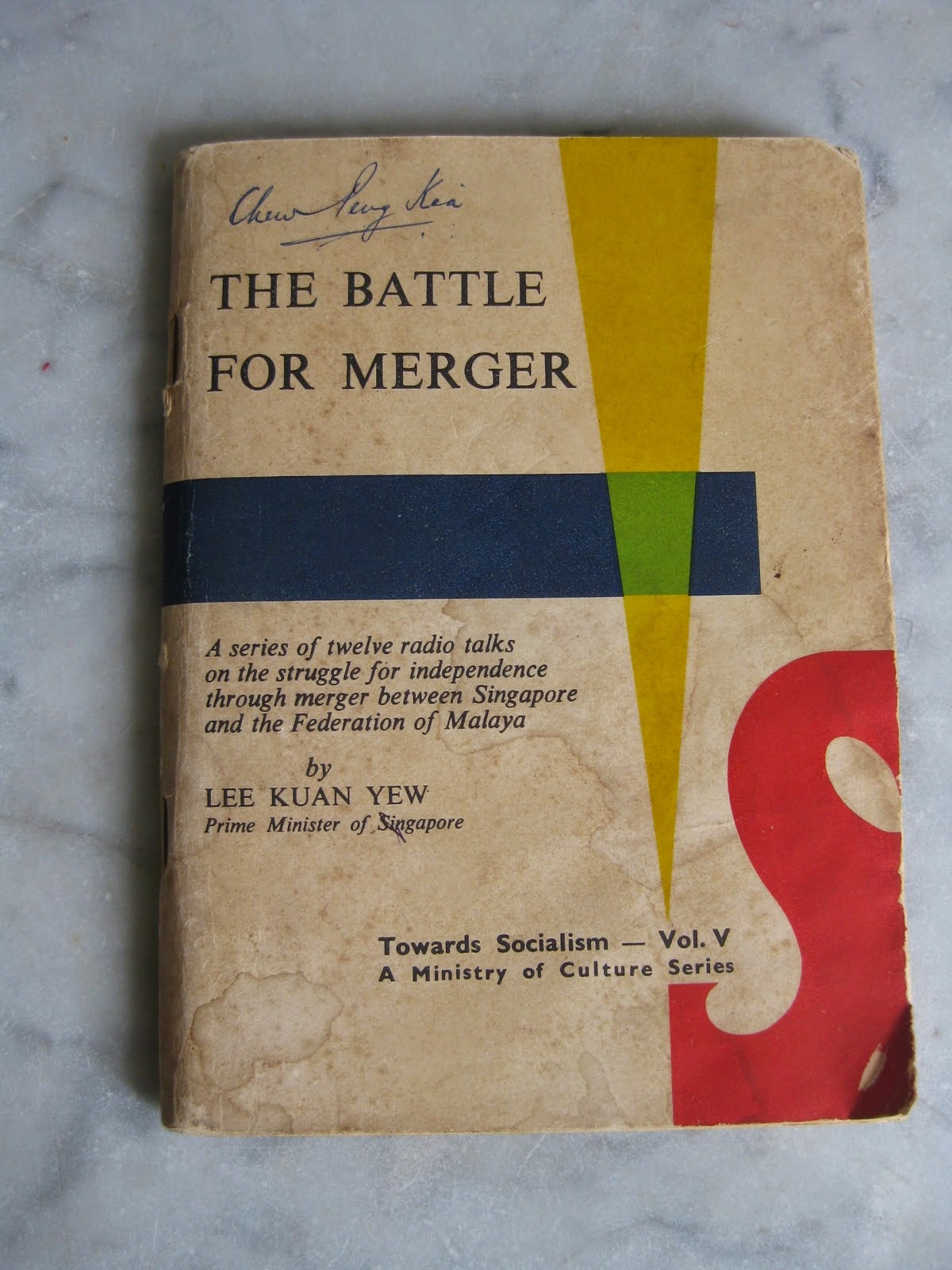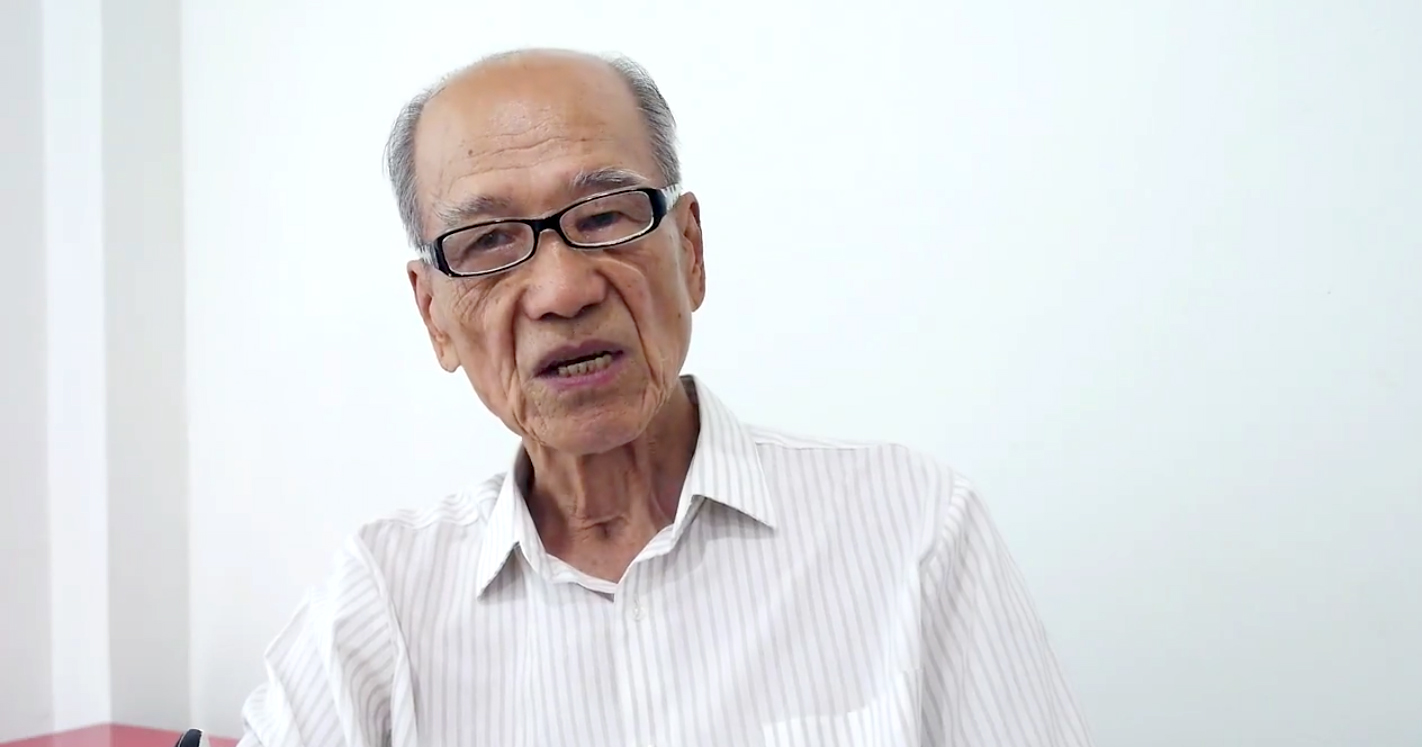Chances are, even if you don't really follow politics, you might have heard about the six-hour grilling session between Minister for Law and Home Affairs K Shanmugam and historian Thum Ping Tjin:
The session, held in the last week of March, as well as its ensuing discussion, triggered a video response from ex-political detainee and former assistant secretary-general of the Barisan Sosialis party Poh Soo Kai, who "challenged the assertion" that Operation Coldstore was conducted on grounds of national security.
Poh was one of more than 100 people detained under Operation Coldstore in 1963. Later on, he was detained again, under the Internal Security Act (ISA) in 1976 and 1982.
Here's the video, accompanied by a transcript, posted to civil society group Function 8, which campaigns against the ISA in Singapore:
It is currently one of the most popular video from the group's Facebook page.In summary, here's what he said:
- Shanmugam said Operation Coldstore was necessary on the grounds of national security, i.e. Poh and his colleagues in the Barisan Sosialis were a threat to Singapore's national security, and he wanted to challenge that statement.
- Poh set out the context where it took place in Singapore's history, making the following points:
- For one, Operation Coldstore happened while Singapore was still a British colony, and not yet a nation — therefore the question of whether there was any "national security" to compromise is moot.
- It happened two years after the Hong Lim by-election, which the People's Action Party (PAP) candidate lost to former mayor and cabinet minister Ong Eng Guan, despite the late Lee Kuan Yew believing that a letter of endorsement from the Communist Party would win the PAP the seat without the help of the trade unionists (who were not on the now-ruling party's side at the time).
- Poh used the above point as an illustration to assert his view that the communist influence (despite there being about "40-odd card-holding communists" at the time in Singapore) was "grossly overestimated".
[related_story]
- The reasons he puts forward to support his position that Coldstore was politically motivated instead of done for national security include:
1) If the elimination of communist influence were a primary goal, then anyone involved or suspected to be should, to Poh's mind, be "nipped in the bud" — which would be the logical thing to do if security truly were the issue at hand. Poh pointed out that Coldstore was supposed to happen in December 1962, but was held off until three months later (Feb 1963) "when the Brunei rebellion gave them the pretext to arrest".
2) Poh asserted that the late LKY chose the last day of Chinese New Year for the mass arrests, alleging that LKY believed there would be fewer chances of protest from people who were otherwise busy with CNY celebrations.
Poh adds a few other assertions that cast his doubt on LKY's intentions with respect to carrying out Coldstore.
So, TL;DR
Poh, an ex-political detainee himself, says Operation Coldstore was not a matter of national security because:
- We were still under British rule so the issue of "national security" has to be questioned, and also considered, in the right historical context.
- If it really was a matter of national security, there wouldn't have been delays in carrying it out.
Past exchanges between Poh and S'pore govt officials
This issue is not new.
Four years ago, in 2014, a book titled The Battle for Merger (a collection of radio broadcast transcripts by then-Prime Minister Lee Kuan Yew) saw a reprint 52 years after its original run:
 Original print of Battle for Merger. Via.
Original print of Battle for Merger. Via.
The reprint and public exhibition of the radio talks triggered a guest response to the late Lee's assertions through his radio talks from Poh, that were published in the Australian National University's website New Mandala.
It provoked a war of words between Poh and Singapore's High Commissioner to Australia, Burhan Gafoor.
In response to the reprint, Poh issued a counter-narrative supplemented by a reading list which included titles such as:
- Comet in our Sky: Lim Chin Siong in History,
- The Fajar Generation: The University Socialist Club and the Politics of Postwar Malaya and Singapore, and
- Beyond the Blue Gate: Recollections of a Political Prisoner
Again, Poh's argument in 2014 posited the need to see Coldstore in its historical context. He asserted that it was executed by the PAP to all but flatten its political opponents at the time (the Barisan Sosialis, namely), as well as to protect the interests of the British in the region.
In response, Gafoor supplied "abundant evidence of communist conspiracy" that included admissions from old leaders of the Communist Party of Malaya (CPM), and various British correspondence, thus in his view justifying the need for Operation Coldstore to prevent communists from taking control of parliament, and by extension, forming the government.
You can read their exchanges below, in this order:
- Singapore’s ‘Battle for Merger’ revisited by Dr Poh Soo Kai
- Response to Poh Soo Kai's allegations by High Commissioner Burhan Gafoor
- Singapore’s ‘Battle for Merger’ revisited Part 2 by Dr Poh Soo Kai
- Reply to Dr Poh Soo Kai’s rejoinder by High Commissioner Burhan Gafoor
Related stories:
Top photo: screenshot from Function 8 video
If you like what you read, follow us on Facebook, Instagram, Twitter and Telegram to get the latest updates.
